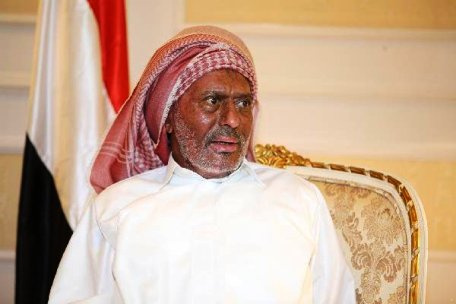Saleh’s Days Are Over

Yemen’s president appeared on TV on Tuesday to address the people of his country. Ali Abdullah Saleh, who is undergoing treatment in Riyadh for severe injuries following an attack on his presidential compound in Sana’a, tried to save face by accusing protestors of being manipulated by a ‘corrupt’ opposition. Nevertheless, he called on his party to negotiate with the parliamentary opposition, the Common Forum, to find a way to implement the GCC initiative for power transition in this southwestern Asian country. Iranian Diplomacy interviewed Middle East expert Jafar Qannadbashi on Saleh’s speech and the future of his political career:
IRD: In his televised speech on Tuesday, Yemeni President Ali Abdullah Saleh asked his ruling party, the General People’s Congress, to make contact with the opposition front in order to develop a mechanism to implement the Persian Gulf Cooperation Council initiative for a peaceful transition of power. How did he come to this conclusion?
JB: Circumstances have dramatically changed since April, when the GCC first proposed its plan. Ali Abdullah Saleh left Yemen in critical condition and the Yemenis are already experiencing a post-Saleh era. Except for his sons, few power loci inside Yemen welcome his return. The army is disinterested, since his return means further trouble for the military. The upper class is also against his return, since it would shut down their business. And neither do the masses want him to come back. Powerful countries of the region will also grimace at his decision; they saw his temporary stay in Saudi Arabia as a catalyst to transition and believe that his return will aggravate the situation. Saleh is thinking of a conditional approval of the GCC initiative, perhaps floating the idea of provisions about his son, Ahmed Ali. Like Mubarak and Qaddafi, Saleh sets family issues as his priority.
IRD: Ali Abdullah Saleh has warned about the disintegration of Yemen if the current situation continues. How serious do you think his warning is?
JQ: Disintegration is the bogeyman many Arab leaders, as well as Western countries and its media, have used to suppress pro-democracy demands. There was similar talk about post-Qaddafi Libya, Morocco and Algeria. But the truth is that Yemen is unlikely to disintegrate. True, Yemen was once split into North Yemen and South Yemen, but those borders were ideological and a product of the Cold War. After the Soviet Union’s collapse, the countries merged into one. Ali Abdullah Saleh and other dictators who sell the fear of disintegration also try to enliven tribal and religious gaps.
IRD: Will Yemen turn into the new epicenter for Al Qaeda now that this terrorist group has received powerful blows in Pakistan?
JQ: Talk of Al Qaeda using Yemen as a haven has always been around since 9/11 and Saleh took advantage of the phobia to crack down on his opponents. It is the easiest way to imprison the opposition forces without having to pay a political or diplomatic price. It’s just like the way Israel accuses Palestinians of terrorism to stifle their quest for liberation.
Al Qaeda is a real threat in Afghanistan and Pakistan, but in Yemen it is significantly low-profile and despite its existence, does not enjoy support from the people. Salafis and Wahhabis, active mostly in the southern cities of Yemen, may be a more serious problem.
IRD: What do you predict the opposition’s reaction to Abdullah Saleh’s approval of the GCC plan will be?

